Hello everybody!
Today’s August 1, so it’s time to name the winners of our $1,500 Annual Essay Writing Contest Scholarship!
As usual, before the announcement itself, let’s first review some statistics.
Of the 503 submissions we received, 436 were evaluated. Unfortunately, a small number of works could not advance to the next stage for various reasons. Some of them lacked proper formatting, featured unrelated subjects, or contained plagiarism.
We appreciate each and every entry and your interest in our competition!
The following criteria were used to determine the points awarded to submissions that made it to the evaluation stage:
- Organization – 20 points;
- Use of Language and Style – 30 points;
- Content and Ideas – 20 points;
- Grammar, Punctuation, and Spelling – 20 points;
- MLA Referencing – 10 points.
All 436 applications received an average grade of 61.5 points. Quite an impressive outcome!
Ok, enough chatting, it’s time to see who won the prizes.
Our Essay Writing Contest Scholarship Winners are:
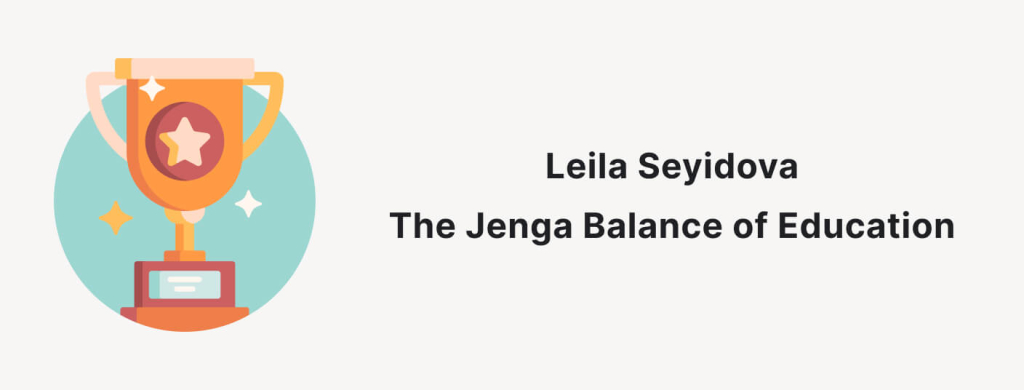
Leila Seyidova with the essay “The Jenga Balance of Education” received 92 points and takes the $1,000 prize.
The Jenga Balance of Education
Presently, the education system resembles a Jenga tower while the global climate tests its balance. One of those tests, Covid-19, questioned the future of the education system and the effectiveness of e-learning. While our globalized world cannot avoid virtual schooling, in-person education remains one of the most effective ways to learn. In this essay, I will argue that a complete transition to e-learning cannot and will not constitute the future of the education system, especially for children and those who need hands-on experience. In contrast, virtual learning creates limitless educational opportunities outside of time and space constraints. In other words, while the future of education cannot eradicate in-person learning, virtual classes alleviate some of its physical restrictions.
During the pandemic, as all teachers, I taught my kids online, which turned into babysitting sessions. Vedechkina and Borgonovi note that children pay attention to the medium (computer screen) instead of the content, which means that they do not notice changes to the content, so long as the medium remains stable (4). Children’s (pre-adolescents) attention span is already close to non-existent as it. When left to their own devices to stare at a screen, they focus more on ways to entertain themselves than listen to their teacher’s explanation. Moreover, kids learn from birth and pick up on ques passed on only through contact. As Piaget’s Stages of Cognitive Development reveal, for children from birth, “All of the most basic facts about the world are first discovered through physical means” (Tranquillo, 2). Education is no different. Children depend on human touch to effectively learn. So long as kids’ behaviours remain unchanged, the future of virtual classes will only hinder their learning.
Similar to the young generation that suffers from e-learning, those who need real life practice struggle as well. My brother, as a science student, started university in the heat of the pandemic. All of his labs were cancelled and instead he had to watch a video of someone else conducting the experiment he should have experienced. In the future, outside of Covid-19, certain skills must be taught, learned, and practiced in person. For instance, we will not trust a surgeon who has not held a scalpel enough times. Furthermore, when it comes to learning styles, “Kinesthetic learners may account for as much as 45% of the population” (Tranquillo, 2). Kinesthetic learners “acquire information fastest when participating in a science lab [etc]” (Tranquillo, 2). A mastery of any skill demands hands-on experience to solidify learned theories. While theoretical knowledge does not require in-person assistance and can be taught online, practical one begs for in-person learning.
Despite the limitations of online instruction mentioned above, it has its benefits. E-learning has the potential to create a more educated and knowledgeable society. Knowledgeable in the sense of knowing general information, rather than having a grasp of a specific sphere. The age of globalization and the internet has made accessing information effortless. We can certainly question the accuracy of that data, but we can agree that our trusted friend Google can answer most peculiar queries. This abundance of easily accessible information enables a society to be aware and mindful of its surroundings. Additionally, e-learning grants access to people all over the world to learn from one another. For example, I can teach students in Saudi who plan to immigrate to Canada, and help thousands of people through online courses that they can watch whenever and wherever they like. Employees can advance their skills online while remaining employed (Appana, 8). The ability to learn any given subject without having time and place restrictions enables one to learn at their pace and in ways that they find most effective. Consequently, e-learning creates a tightly knit ecosystem that is boundless in its power, as it operates outside any physical constraints.
The global pandemic, in all its ruthlessness, showed us a glimpse into the future of the education system. E-learning may cause more harm than good to young students and those in need of practical knowledge. However, virtual education does not confine to time nor space, which enables it to assist those who need flexibility. In education, as in a stable Jenga tower, a balance between virtual and in-person learning rests vital for survival.
Works Cited
Appanna, Subhashni. (2008). “A Review of Benefits and Limitations of Online Learning in the Context of the Student, the Instructor and the Tenured Faculty.” International Journal on E-Learning, vol. 7, 2008.
Mcleod, Saul. “Jean Piaget’s Theory and Stages of Cognitive Development.” Jean Piaget’s Theory and Stages of Cognitive Development | Simply Psychology, 7 Dec. 2020.
Tranquillo, Joe. “Kinesthetic Learning in the Classroom.” 2008 Annual Conference & Exposition Proceedings, 2008.
Vedechkina, Maria, and Francesca Borgonovi. “A Review of Evidence on the Role of Digital Technology in Shaping Attention and Cognitive Control in Children.” Frontiers in Psychology, vol. 12, 2021.
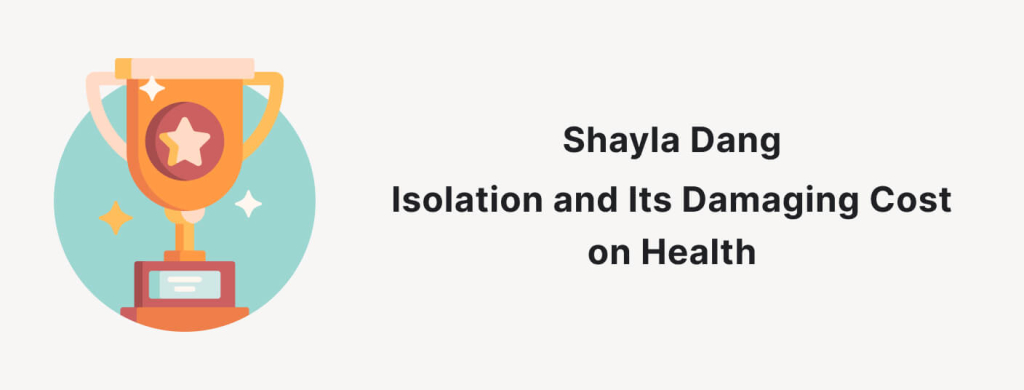
Shayla Dang with the essay “Isolation and Its Damaging Cost on Health” received 89 points and takes the $500 prize.
Isolation and Its Damaging Cost on Health
Luckily for most, isolation is a choice. Many people isolate themselves to reflect, to calm, or to heal. For instance, transcendentalist Henry David Thoreau decided to isolate himself for two years in the wilderness. In Walden, he wrote of the amazing learning experience he obtained from isolation; he learned how to live simply and independently and how to live a fulfilled life. However during the COVID-19 pandemic, the world’s isolation was not a choice. It did not provide the same positive fulfillment Thoreau achieved at Walden Pond. The quarantine, with almost 2 years of isolation, we all faced left many of us depressed, alone, unmotivated, and fatigued.
We know the experience of isolation all too well because of the COVID-19 pandemic lockdown. The pandemic changed our lives in many ways, especially our human nature. Humans are meant to interact and depend on each other (WebMD). As opposed to baby birds that leave their nests at only 3 weeks old, human babies need to be nurtured and cared for years before being separated and independent from their parents. This inherent dependability and need for communication and care makes socializing crucial to human living. Quarantine changed the environment we lived in; thus, the social determinants of our health, all the conditions in which humans live including social and economic conditions, were changed (Holt-Lunstad). We lacked the social and community determinant of health during isolation. Without the interactions necessary to stay happy, mental health depletes drastically. Similarly, “loneliness increased 20 to 30 percent” while “emotional distress tripled” (Holt-Lunstad). People felt unworthy to live because they felt no one cared for them while alone. In June 2020, depression rates in the US were four times greater than rates in 2019. Suicidal thoughts also doubled as a result of COVID-19 isolation (CDC). The abrupt social isolation caused by the pandemic took a huge toll on people’s mental health. The lack of talking, laughing, and sharing resulting from staying stuck at home left many quiet, sad, alone, and desperately finding a reason to wake up the next day.
Not only does isolation affect mental health, but also affects physical health. It is known that emotions affect behaviors: when you are angry, you slam the door or break something. Loneliness and depression caused by isolation affect behaviors with increasing drinking and eating, which can cause premature deaths. Drinking rates increased 21% during quarantine resulting in an estimated 8,000 deaths from alcohol liver disease and 18,700 deaths from liver failure (Brown). The changes in behavior due to the mental toll of isolation can drastically affect one’s health. Emotions not only affect behaviors but also the body. Emotional distress can cause headaches, fatigue, sleep problems, and more (Mayo Clinic). According to the CDC, there is a correlation with loneliness and increased risk of heart disease and stroke. Additionally, social isolation caused a 50% increase in the risk of dementia (CDC). Because humans are born to socialize, eliminating communication is like eliminating food. Humans need energy to live as well as interactions to thrive. Isolation takes away that source of surviving, and it shows through its effects on human physical health.
No one can argue that isolation has harmed us all. From anxiety to insomnia, lack of social interaction negatively affects both mental and physical health. Nevertheless, coming out of quarantine back into almost normal life has been so fulfilling. I and everyone else are so happy being able to talk, laugh, and share in our regular social determinants of health. Although the isolation was awful, it was indeed a learning experience just like Thoreau expressed. We all learned to appreciate our loved ones—our family and friends. We learned to cherish the small talks we take for granted. That small interaction with a “Hi, how are you?” can boost your well-being.
Works Cited
Brown, Noah. “Alcohol Consumption during the COVID-19 Pandemic Projected to Cause More Liver Disease and Deaths.” Massachusetts General Hospital, https://www.massgeneral.org/news/press-release/alcohol-consumption-during-the-covid-19-pandemic-projected-to-cause-more-liver-disease-and-deaths.
Holt-Lunstad, Julianne. “The Double Pandemic of Social Isolation and Covid-19: Cross-Sector Policy Must Address Both: Health Affairs Forefront.” Health Affairs, 22 June 2020, https://www.healthaffairs.org/do/10.1377/forefront.20200609.53823/.
“How Social Isolation Impacts Mental Health and How You Can Cope.” WebMD, WebMD, https://www.webmd.com/mental-health/social-isolation-mental-health.
“How Stress Affects Your Body and Behavior.” Mayo Clinic, Mayo Foundation for Medical Education and Research, 24 Mar. 2021, https://www.mayoclinic.org/healthy-lifestyle/stress-management/in-depth/stress-symptoms/art-20050987.
“Loneliness and Social Isolation Linked to Serious Health Conditions.” Centers for Disease Control and Prevention, Centers for Disease Control and Prevention, 29 Apr. 2021, https://www.cdc.gov/aging/publications/features/lonely-older-adults.html.
Thoreau, Henry David. Walden. DRAGON CLASSICS, 2020.
Congratulations!
As always, if you didn’t win this time, don’t worry—there will be more competitions in the future! Keep up with new announcements on our writing contest and video contest pages!

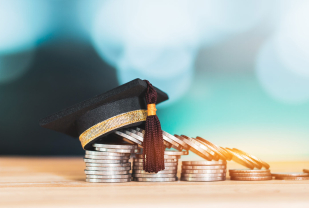
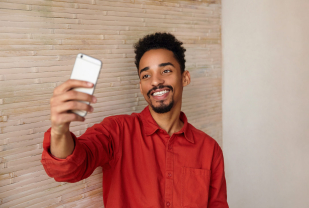
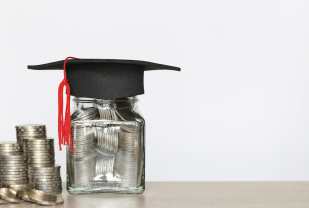
that’s awesome
I study at university. I am junior. I am very interested in studying at least Cambridge or Oxford university
Student
It’s very amazing and greatful. I wish to become the next winner.